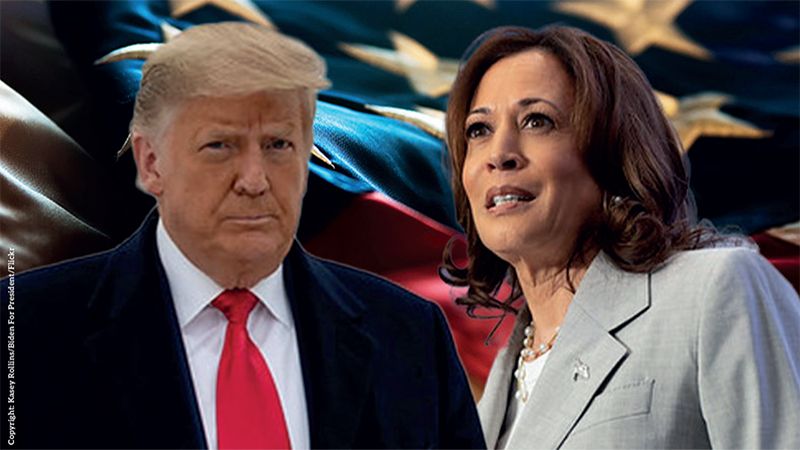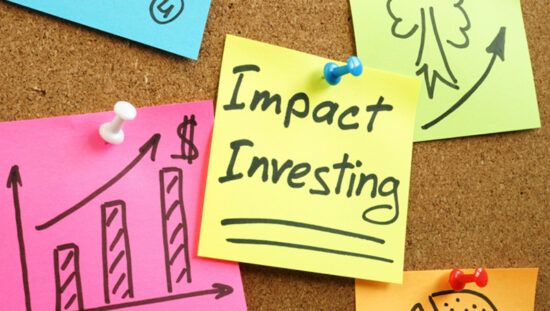The divide between the two candidates for the US presidency couldn’t be starker, and nowhere is this more apparent than in their policies on renewable energy and sustainability.
According to investors, Kamala Harris is likely to continue the work of the Biden administration, spending big on net zero and energy transition-linked projects. In contrast, Donald Trump has spent his campaign predicting “the end of fossil fuels” if Harris gets into power – a big deal for the thousands of people who work in the industry – and has pledged to repeal the Inflation Reduction Act.
However, Gemma Woodward, executive director and head of responsible investment at Quilter Cheviot, pointed out numerous states have already fought back strongly against what they perceive to be the ‘woke agenda’, and this is set to continue regardless of the election result.
“All of this has resulted in an element of greenhushing from asset managers who are keen not to shout about their responsible and sustainable investment activities for fear of upsetting local policymakers,” she added. “With a Trump victory, this could very much increase and become the norm for many, who won’t want to be sat on the outside of the administration.”
Given the potential wide-reaching implications of this election, PA Future spoke to figures within the responsible investment community to ask their thoughts on what a Harris or Trump presidency could look like.
What would a Harris presidency look like?
Clearly, from a responsible and sustainable investment perspective, a victory for Kamala Harris “will represent much more of the status quo”, according to Woodward.
This is expected to manifest itself in the expansion of environmental regulations that limit carbon emissions and pollution, such as fuel efficiency standards and methane regulations. It could also mean that the US rejoins international climate agreements, potentially pushing for even more ambitious international climate goals and maneuvering the US into a position to lead the global agenda.
However, Wooward noted the Democrats are also trying to play Trump at his own game and have committed to some of the “more eyebrow-raising tariffs” introduced, such as on Chinese electric vehicles.
“Tariffs will be inflationary, so the incentives need to stay very much alive to get US-based businesses to commit the capital required to build these projects that will ultimately benefit the global climate,” Woodward added.
However, Rahul Bhushan, managing director of Europe at Ark Invest, flagged tariff policies, particularly on Chinese imports, may inadvertently benefit US green energy stocks.
“By imposing tariffs on Chinese solar panels and related components, domestic manufacturers may find a more favourable market environment, potentially boosting their stock performance. Tariffs on Chinese imports, including solar panels, lithium-ion batteries and EV components, create a protective market for US manufacturers.
“Companies such as First Solar have benefited from these tariffs as they mitigate the price advantage of Chinese imports, potentially boosting domestic production and sales. Other companies such as SunPower Corporation (SPWR) and Enphase Energy (ENPH) could also see positive impacts as the tariffs help level the playing field.”
John Plassard, senior investment specialist at Mirabaud Group, predicted a Harris administration could benefit the renewable energy, green technology, electric vehicles, artificial intelligence, cybersecurity, infrastructure and public health sectors.
What would a Trump presidency look like?
On the other hand, said Woodward, the Republican party has entrenched its anti-ESG views in recent years and will instead be looking to shrink the size of the state, while still spending huge sums.
Pressure is also likely to be put upon those public bodies that survive any looming cuts – the Federal Reserve and SEC will likely find a Republican administration putting pressure on them to remove any analysis of environmental or social risks and any associated regulation.
“Should Trump win, the industry will need to buckle up once again, as it will likely be a very volatile and uncomfortable ride as he looks to implement his ‘America First’ agenda.”
However, while Trump has pledged to repeal the Inflation Reduction Act – an Act designed to spur investment in green technology through grants, loans and tax credits to public and private entities – this seems “unlikely”, given the majority of IRA projects are based in ’red states’.
Bhushan said that many tax credits and subsidies under the IRA are popular due to their job creation and economic growth impacts.
“These provisions support renewable energy projects, critical mineral processing and battery manufacturing, all of which are critical to local economies. For instance, the IRA is expected to create over 80,000 jobs and generate $98bn in investment across 142 announced projects. Additionally, funds have already been allocated to various projects, making it difficult to claw back these investments.”
Instead, the Trump administration is very unlikely to commit further capital, asserted Woodward, preferring to focus on the extraction of fossil fuels.
“Clearly, this result will not be good news for those involved in the renewable energy space,” she added.
Additionally, despite Trump calling the climate agenda “radical left-wing rubbish” – withdrawing from the Paris Agreement in his first term, for example – clean energy production capacity still grew during his presidency, said Robert Lambert, portfolio manager at RBC BlueBay.
“Is he going to be particularly bad for clean energy growth? I think it might make private sector investment a bit more difficult, as you’d be wondering what might happen to tax incentives. He’s [Trump] quite spontaneous and unpredictable. So, I think that’s likely to play out in terms of companies you would invest in.”
Asked whether investors could invest more conservatively under a Trump administration, Lambert said: “Yes. I think there’d be a trend back to traditional investment in fossil fuels and cash. He’s talked about things like sourcing cheap oil from Saudi Arabia, but America has energy independence, and there’s an argument that he’s going to benefit the fossil fuel industry.
“It’s not clear to me how a clean energy player is going to benefit from a Trump administration, there’s just going to be heightened uncertainty. I would have thought that we’ll see some potentially exit the US and look at more supported jurisdictions to operate from.”
Plassard predicted fossil fuels, pharmaceuticals (particularly biotech), education technology, small- and mid-cap stocks and prison companies could all benefit from a Trump administration.








